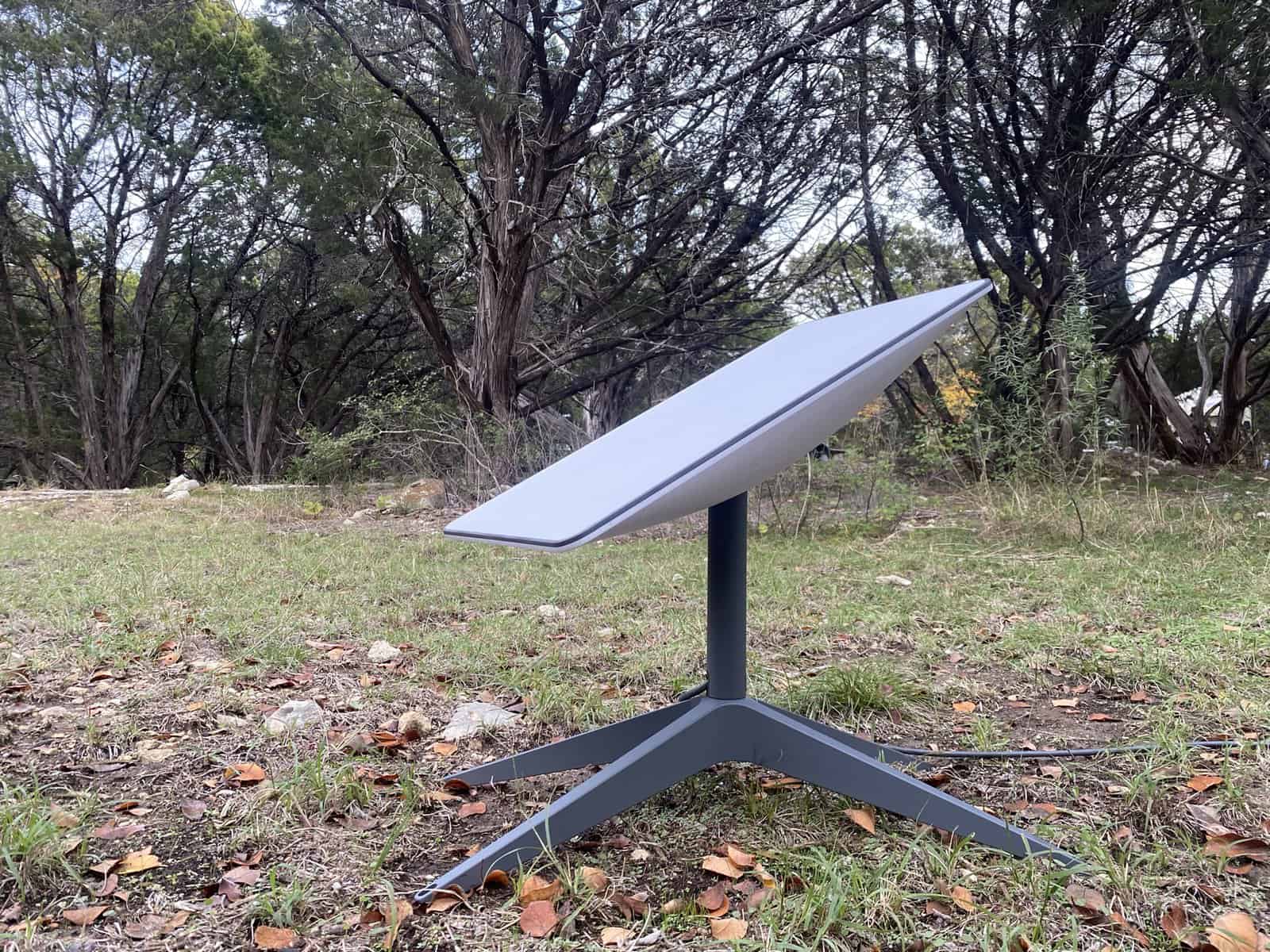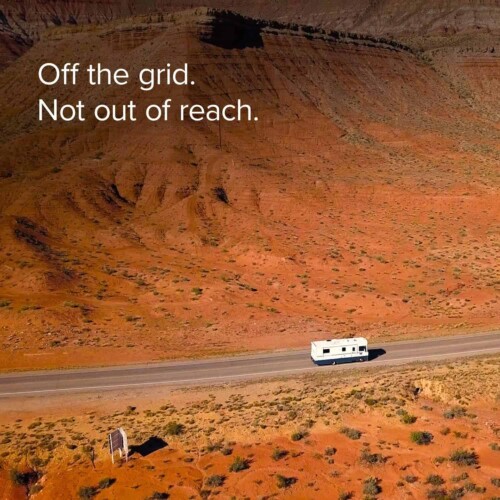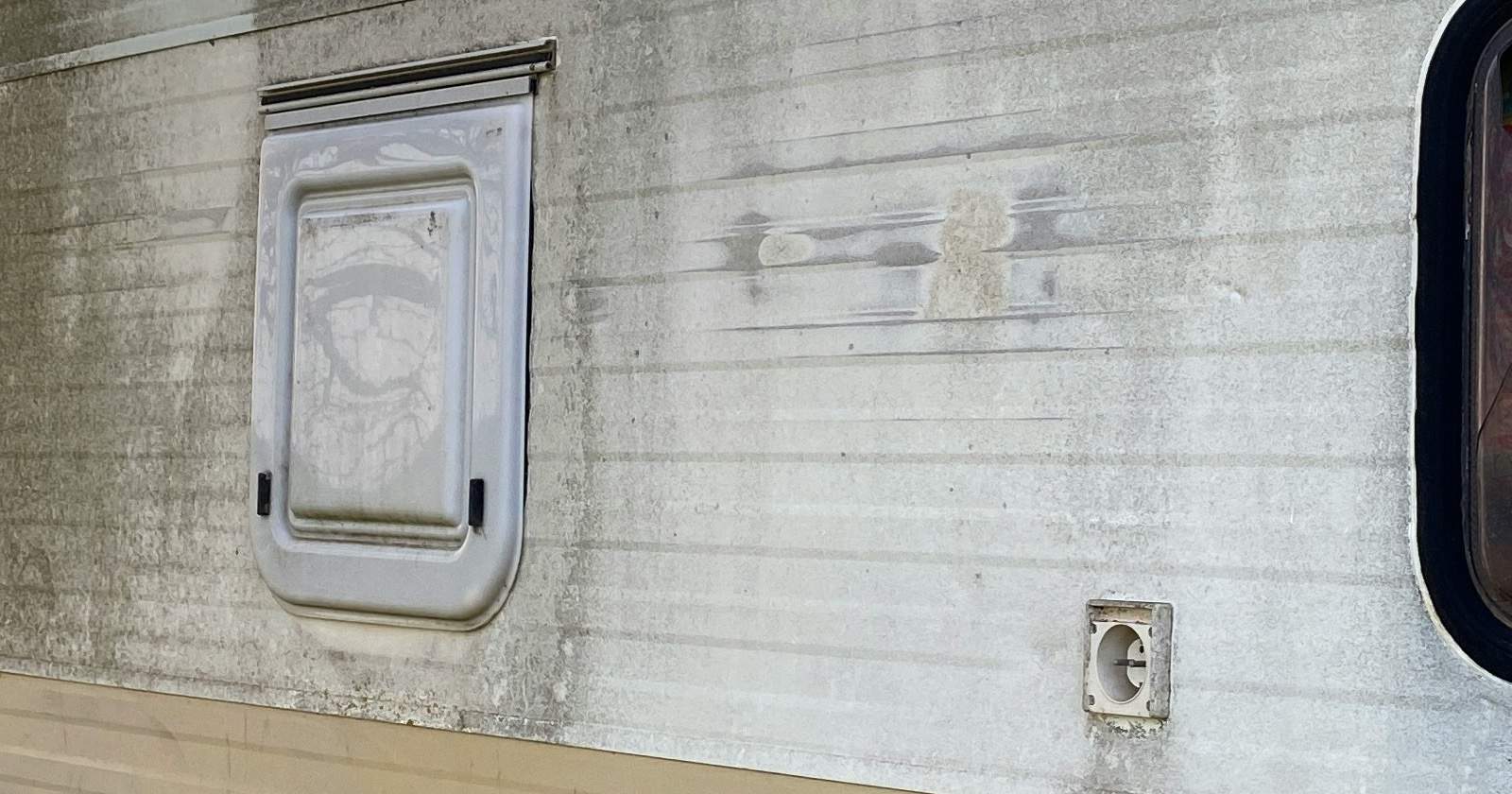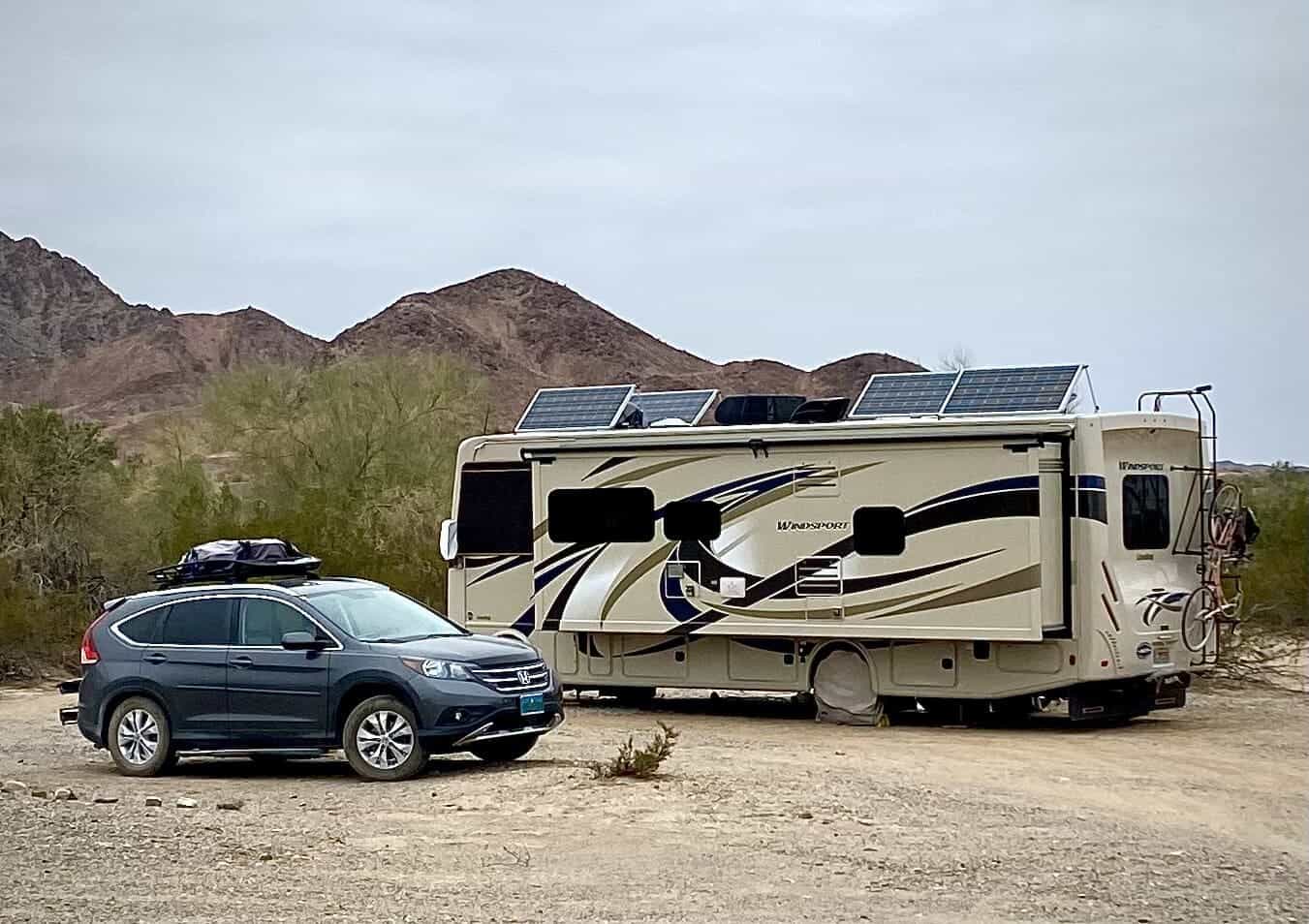As a full time RVer who works online as I travel, having access to the internet in my RV is incredibly important. Fortunately, there are several different RV internet options, meaning it’s totally possible to stay connected while on the road.
These days, we even manage to stay online while boondocking in the middle of nowhere! If you’re wondering how to get internet in your RV, you’ve come to the right place. In this article, I’m going to discuss the best RV internet options so you can have broadband in your RV no matter where you roam.
First, Know Your Data Needs
It is important that you understand what your needs are while traveling in your RV.
- Do you simply want to be able to surf the web and check your email?
- Or do you need to be able to hop on Zoom meetings regularly?
What you need to get out of your internet connection will directly affect the type of RV internet options available to you.

Next, Understand the 3 RV Internet Options
As of now, tare three main RV internet options that will get you online while traveling in a motorhome, travel trailer, or other RV.
- Cellular broadband service
- Satellite internet
- Public and private campground Wi-Fi networks
Each way to get online in your RV has pros and cons.
Cellular broadband internet service
Getting online with your phone or hotspot device is popular. Cellular data from providers like Verizon, AT&T, and T-Mobile is easy to get, easy to use, and is something most people have some experience using already. That said, you can’t get cell reception everywhere, and getting an unlimited data plan can be costly. There are also a number of different cell carriers to choose from, so you will need to do some research to decide which is best for you.
Satellite internet service for RVers
Satellite internet was super slow and clunky up until recently. That said, Starlink RV internet by SpaceX is now on the market, providing fast and reliable satellite internet pretty much anywhere you can clearly see the sky. Now you are no longer limited to cellular coverage areas. The issues?
- You won’t get connected while parked under trees
- Bad weather and too many users in one area also impacts connectivity
- The Starlink equipment requires electricity to get online
- The equipment is a bit bulky
- Some users find that fees are a bit expensive for their budget (especially the upfront hardware cost).
- Users report slower speeds as more people join this service.
Free Wi-Fi networks
Public and campground Wi-Fi networks at places like Starbucks and RV parks are the least reliable internet connections. Public Wi-Fi is not always available—and even when it is, the connection isn’t necessarily going to be great. However, free wifi is also the best way to get free internet on the road. Public wifi can be a good choice if you really only need the internet for recreational purposes.
Get Internet Redundancy and Good Hardware

Once you decide which internet service option will work best for you, take a second look and decide on your second best option. Then, go ahead and invest in both the first and second pick. Some even have a third option in their back pocket as well. This is known as having internet redundancy.
Will you work remotely on the road?
Redundancy is especially important if you NEED to have internet access to do remote work from your RV. Both cellular broadband service and satellite internet do not deliver the same high-speed internet upload and download speeds that stationary internet setup systems do. You may have connectivity issues when using either. And as we mentioned before, you never know when a public Wi-Fi network might not be usable.
However, if you have two or even three connectivity options available to you, you almost always have enough data usage allowance to cover your needs. Keep enough battery life in all of your devices at any given time, and you should be able to get online consistently pretty much anywhere.
Consider a Cellular Router
If you choose to go with cell service for your RV internet (and really, it’s best to have at least one cell plan available for use), you might want to consider investing in a cellular router. A good router will help pull in a better signal and amplify it throughout your rig.
A cellular router is especially handy if you have multiple cell plans.
Purchase a router with multiple card slots and you can use the router for all of your cell plans simultaneously rather than having individual mobile hotspots for each one. Some routers will even intelligently hop between networks for you, ensuring you always have the best connection possible.

Try a Cell Phone Signal Booster
In addition to the aforementioned router, we also recommend investing in a cellular signal booster. This device boosts whatever cell signal you’re pulling in. It ensures that if you have a connection at all, it is a strong one.
Get a Wi-Fi repeater
Want to take advantage of the free public Wi-Fi networks out there? Some RVers get a lot of use out of Wi-Fi repeater systems. These pull in Wi-Fi signals from the area and will actually amplify a signal, making it usable inside your RV. This is one of the least expensive RV internet options, but is also probably the least reliable.
Pro Tip: Plan RV Trips Around Cell Service

If you’re counting on cellular broadband internet service and/or public Wi-Fi networks, there are some areas you will need to avoid unless you can afford to be offline for the duration of your stay.
In order to figure out whether you will have cell signal or access to Wi-Fi in a certain location, we recommend using campground review websites such as RV LIFE Campgrounds. Here, you can see if other campers have been able to connect to campground Wi-Fi or to various cell carriers.
Just remember that you shouldn’t leave your Starlink dish mounted while in transit!
Pro Tip: Avoid Crowded Campgrounds
On your next trip, are you hoping you have decent mobile internet speeds? If so, you’ll want to avoid super crowded campgrounds and other busy locations like Quartzsite at the peak of winter. Cell towers can get overloaded when there are lots of RVers around trying to use them simultaneously. Likewise, Starlink for RVers will slow down when there are too many people using the service in one area—not to mention all those nearby rigs acting as obstructions to the sky.
Because of this, ensuring you stay away from the crowds will give you a better chance of having good speeds.
Pro Tip: Create a Starlink RV Mount
Will you go the Starlink route? In this case, we recommend figuring out a way to mount your Starlink satellite dish while parked. This keeps it safely up off the ground and high enough to get the best signal possible.
There are a few ways to go about this, including the FlagPole Buddy system. We also really like the system in this video:
Get Internet in an RV and Start Traveling!
Getting internet in an RV is not as hard or as complicated as it can seem.
Why not figure out which of RV internet solution will work best for your needs? Then, start putting together your setup right away! Doing so will ensure you can work (and play) no matter where in the country you end up playing, working, and living as digital nomads.




